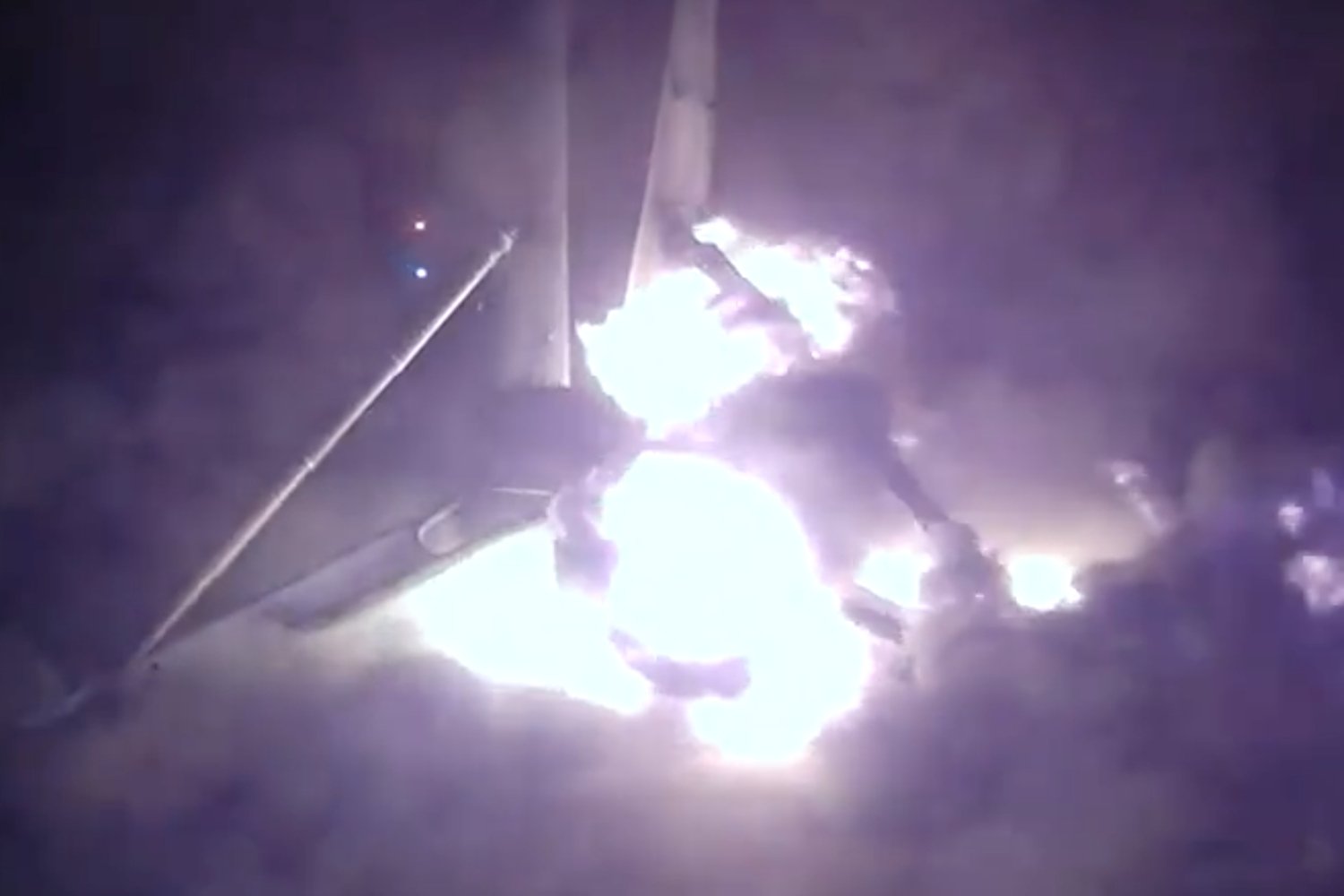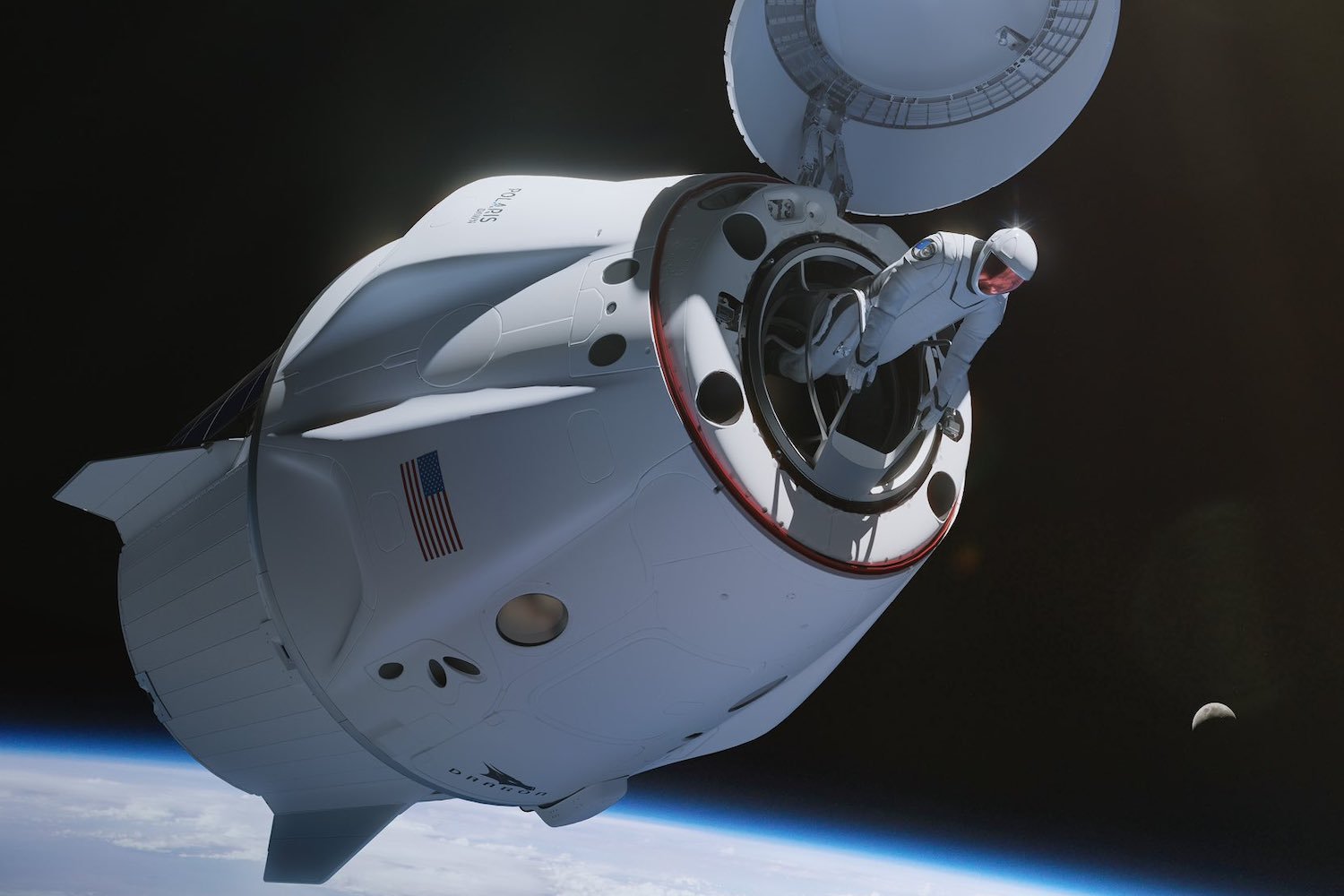A faulty sensor line led to the failure of a SpaceX Falcon 9 rocket earlier this month, temporarily grounding the workhorse launch vehicle.
On July 11, the rocket was unable to deliver its payload of satellites to orbit due to an upper stage malfunction. According to a SpaceX statement released on July 25, an investigation into the incident revealed that, while the rocket’s first stage booster performed without issue, engine vibrations led to a cracked sense line for a pressure sensor in the second stage. In turn, that cracked line led to an oxygen leak developing within the insulation near the engine.
The leak didn’t prevent the second stage from going through a successful initial burn, but it led to excessive engine cooling after the burn was completed. Those low temperatures resulted in damaged engine components when the rocket initiated a second burn. The rocket was able to release its payload of 20 satellites but at too low of an orbit. The entire batch of satellites burned up in the Earth’s atmosphere.
Following the failed flight, SpaceX submitted a mishap report to the Federal Aviation Administration, which oversaw the company’s investigation. SpaceX said that with the inquiry completed, the Falcon 9 has been cleared to resume flights. The next Falcon 9 mission, which will carry 23 Starlink satellites into low-Earth orbit, is scheduled to lift off from NASA’s Kennedy Space Center on July 27 at 12:21 a.m. ET.
“For near term Falcon launches, the failed sense line and sensor on the second stage engine will be removed,” the company said. The sensor is not used by the flight safety team and can be covered by other sensors in place near the engine.
The Falcon 9 is known for its reliability and reusable booster stages. Capable of bringing up to 50,300 pounds (22,800 kilograms) of payload into low-earth orbit, the rocket had flown over 350 successful missions before the July 11 mishap. That mission was the 70th for a Falcon 9 in 2024 alone.













